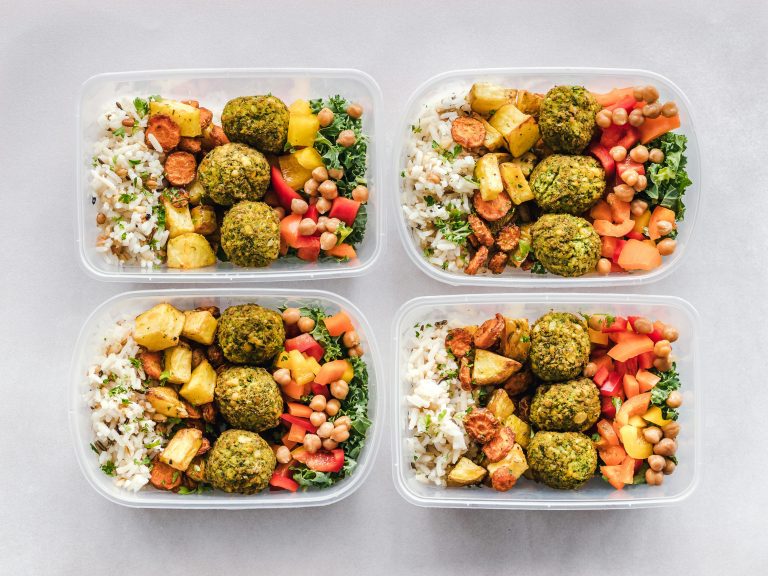Losing weight can be a challenging journey, but focusing on healthy and sustainable methods is key to achieving long-term success. Quick-fix solutions and extreme diets may offer temporary results but often lead to rebound weight gain and potential health issues. Adopting a balanced approach that incorporates gradual changes to diet and lifestyle can lead to more sustainable and healthier weight loss.
Adopting a Balanced Diet
A balanced diet is foundational to healthy weight loss. Instead of resorting to fad diets or extreme calorie restriction, aim to incorporate a variety of nutrient-dense foods into your meals. Emphasize fruits, vegetables, whole grains, lean proteins, and healthy fats. Reducing intake of processed foods, sugary beverages, and high-calorie snacks is important for creating a calorie deficit while ensuring that your body receives the necessary nutrients. Portion control is also crucial; eating smaller, more frequent meals can help manage hunger and reduce overeating.
Incorporating Physical Activity
Regular physical activity is a vital component of any weight loss plan. Engaging in both aerobic exercises, such as walking, running, or cycling, and strength training exercises, such as weight lifting or resistance exercises, can enhance calorie burning and muscle development. Aim for at least 150 minutes of moderate-intensity aerobic activity or 75 minutes of vigorous activity each week, combined with muscle-strengthening activities on two or more days.
Setting Realistic Goals
Setting achievable goals is important for maintaining motivation and tracking progress. Instead of focusing solely on the number on the scale, consider other indicators of success, such as improved energy levels, better sleep quality, and increased physical fitness. Gradual weight loss of about 0.5 to 1 kilogram per week is a realistic target that allows for sustainable changes and reduces the risk of regaining weight.
Want to make it easier?
It’s never easy, but here are 8 Tips for Sustainable Success.
- Set Realistic Goals
- Short-Term Goals: Aim for small, manageable goals like losing 0.5 to 1 kg per week.
- Long-Term Goals: Focus on sustainable lifestyle changes rather than quick fixes.
- Eat a Balanced Diet
- Portion Control: Be mindful of portion sizes to avoid overeating.
- Nutritious Foods: Prioritize fruits, vegetables, lean proteins, and whole grains.
- Limit Sugars and Fats: Reduce intake of high-calorie, low-nutrient foods.
- Increase Physical Activity
- Cardio Exercises: Activities like walking, running, or cycling can help burn calories.
- Strength Training: Building muscle through weight training can boost metabolism.
- Consistency: Aim for at least 150 minutes of moderate aerobic activity or 75 minutes of vigorous activity per week, combined with muscle-strengthening exercises.
- Monitor Your Progress
- Keep a Food Diary: Track your food intake and physical activity to identify patterns and areas for improvement.
- Use Apps: Consider using fitness and nutrition apps to help stay on track.
- Stay Hydrated
- Water Intake: Drink plenty of water throughout the day. Sometimes thirst is mistaken for hunger.
- Limit Sugary Drinks: Avoid high-calorie beverages like soda and sugary coffee drinks.
- Get Support
- Professional Guidance: Consult with a dietitian or healthcare provider for personalized advice and support.
- Social Support: Engage family and friends in your weight loss journey for motivation and accountability.
Seeking Professional Guidance
Like mentioned prior, for personalized weight loss advice and support, consulting with a healthcare professional or a registered dietitian can be beneficial. They can help create a tailored plan that aligns with your individual health needs and goals. Not sure where to start? Book a consultation with IGAKU today.
Read our other articles here.
- IGAKUhttps://igaku.co/blog/author/igaku/
- IGAKUhttps://igaku.co/blog/author/igaku/
- IGAKUhttps://igaku.co/blog/author/igaku/
- IGAKUhttps://igaku.co/blog/author/igaku/


